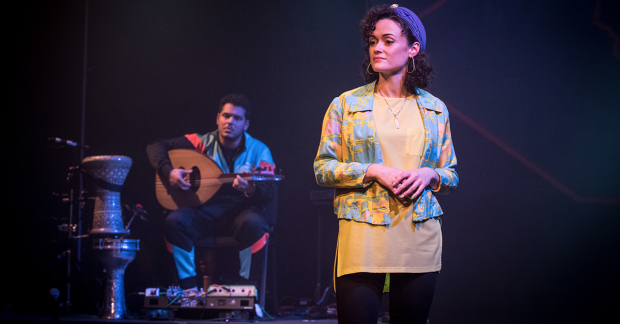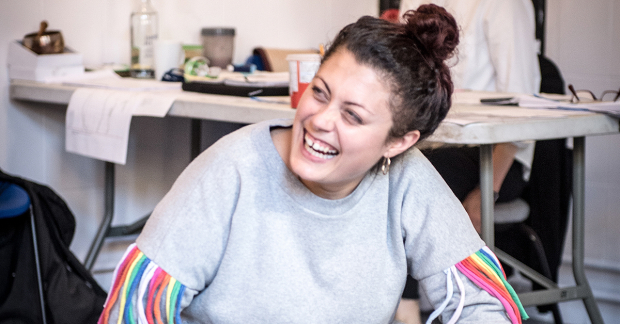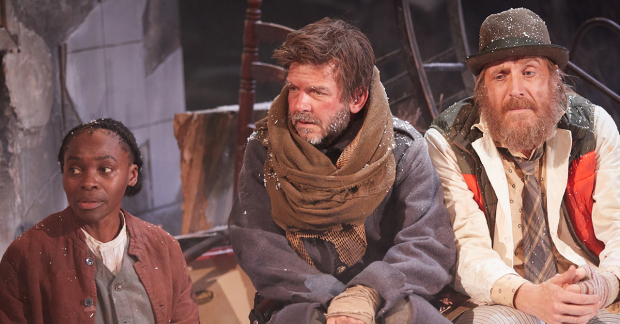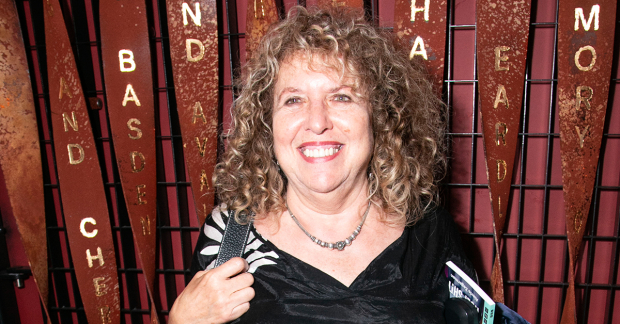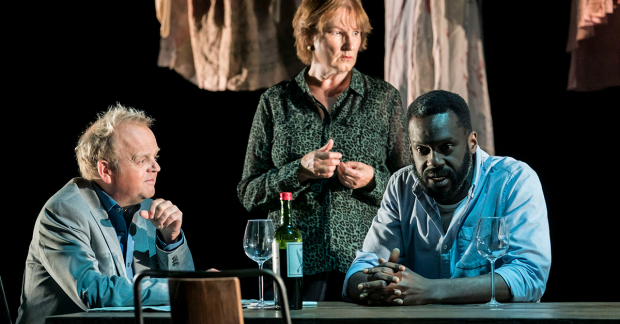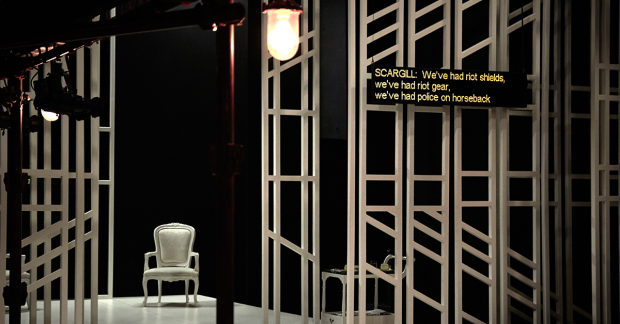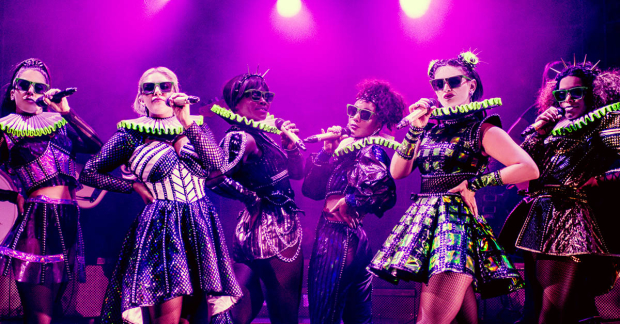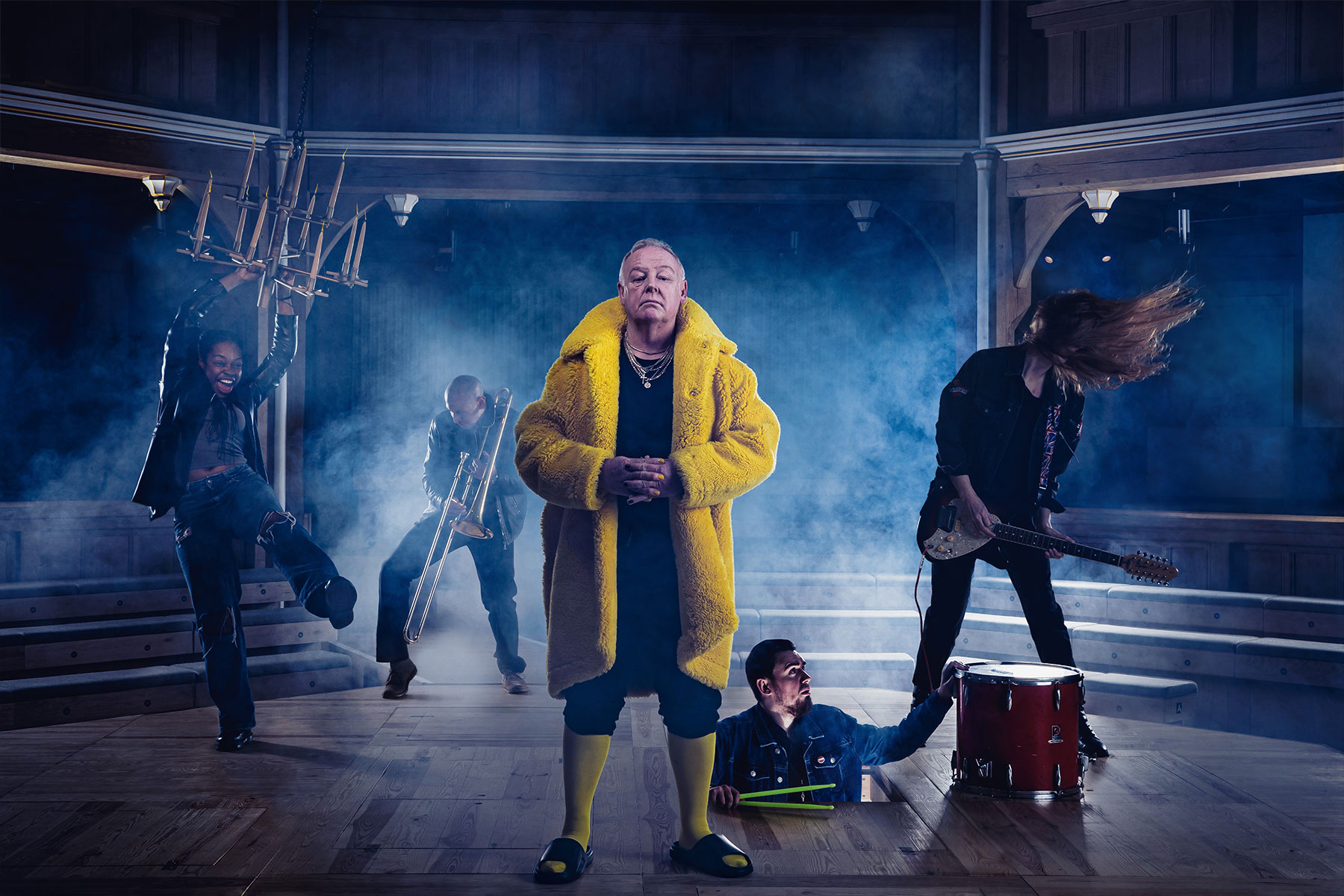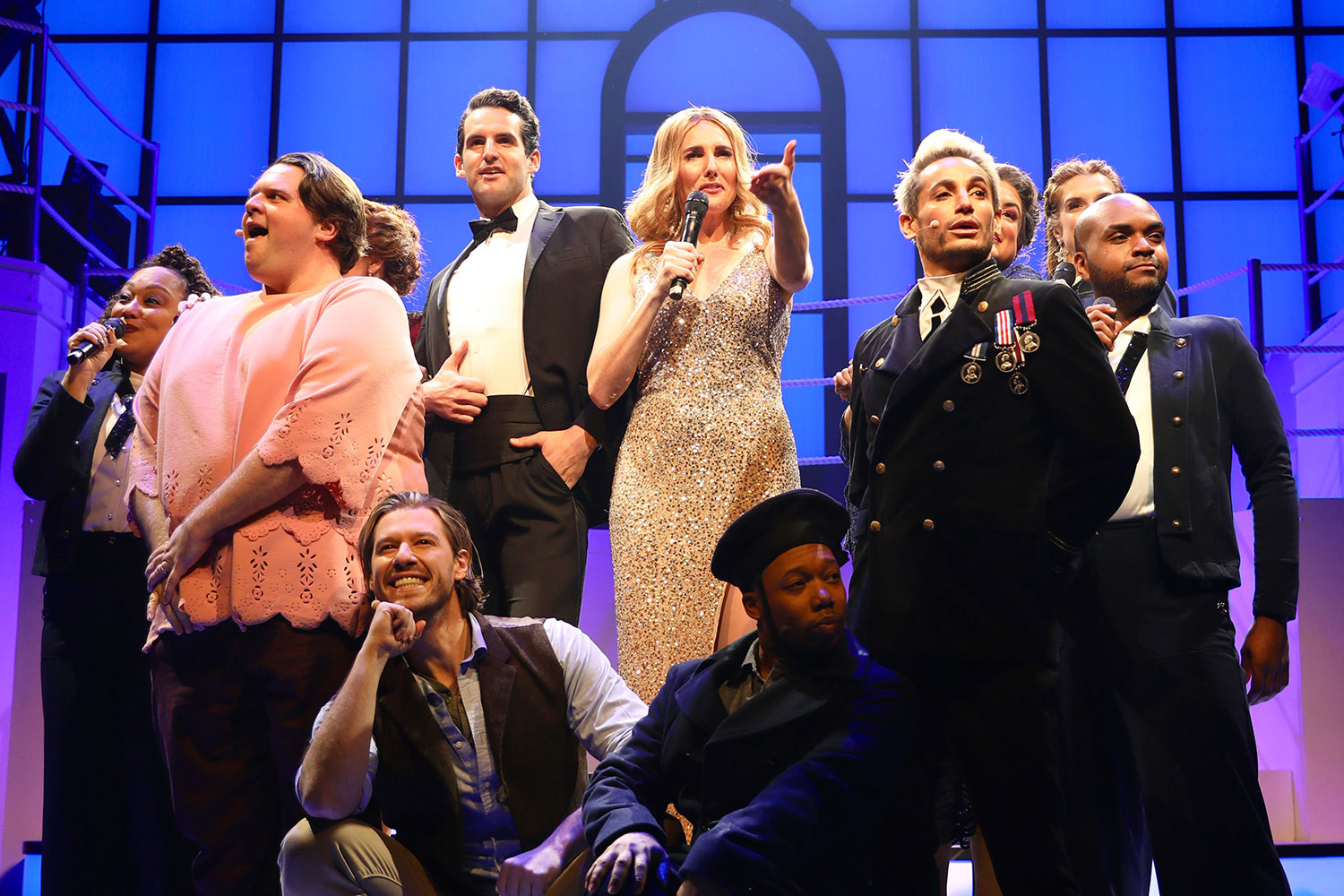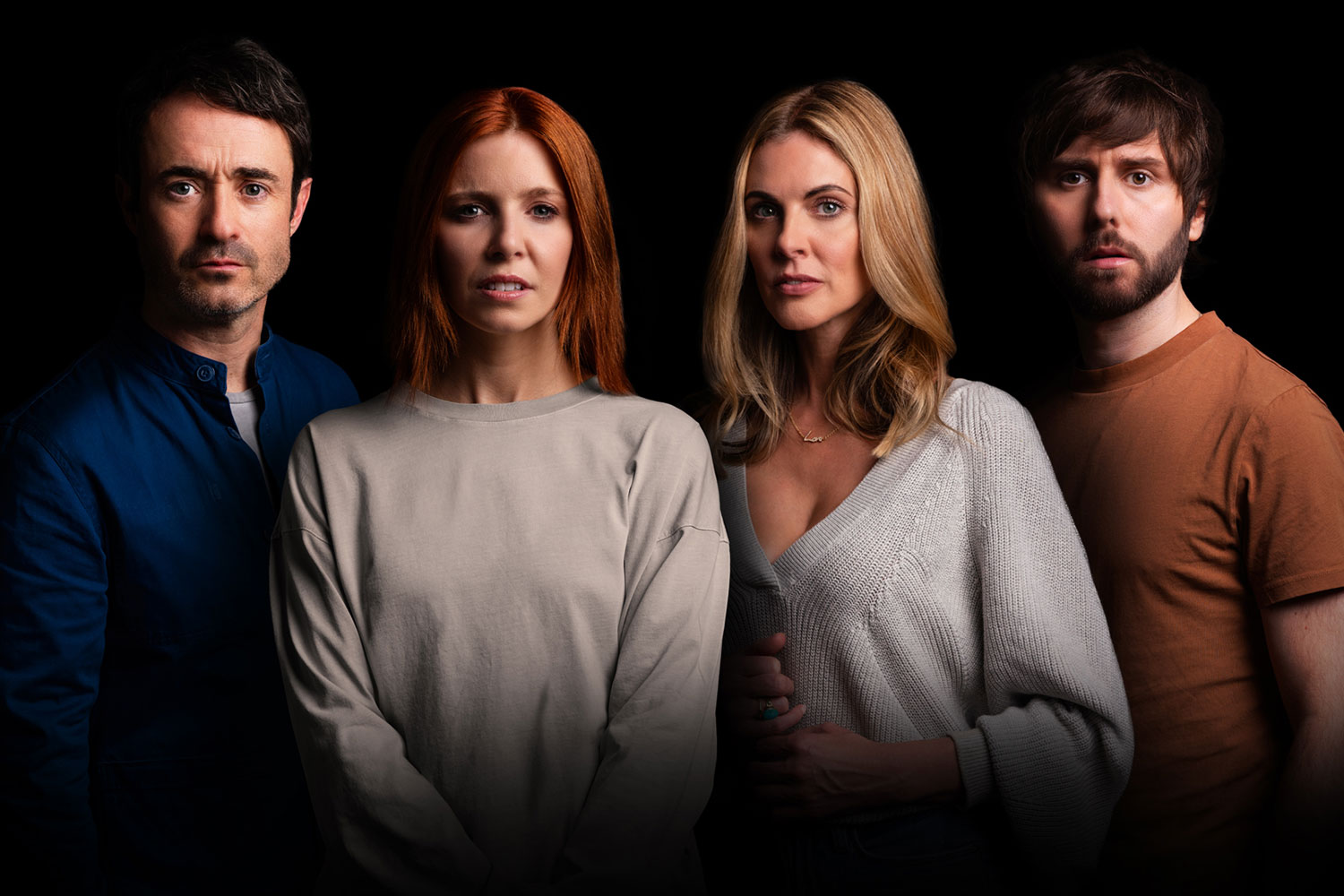Review: Midnight Movie (Royal Court)
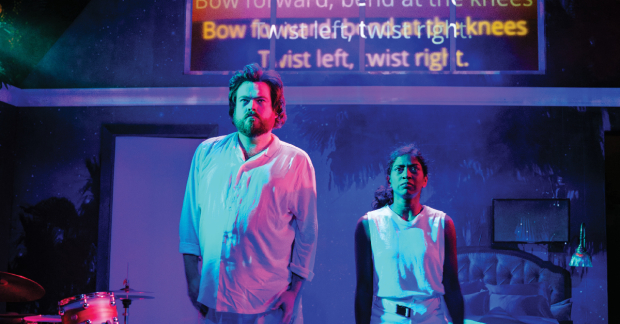
© Helen Murray
What does it mean to live in a digital world? It's the sort of question that gets bandied about by sociologists, anthropologists and G2 columnists on a nearly-daily basis. But playwright Eve Leigh, presenting her second new work of the year, this time at the Royal Court, twists the debate in on itself – what does it mean to live in a digital world when the tangible world isn't one that is tailored towards you?
Less narratively straightforward than The Trick, Leigh writes what is essentially series of scenes, a stream of digital consciousness. A woman is trapped in a lift and found in a water vat. A man watches a drive-in movie when a stranger enters his car. A warehouse is haunted by an angry apparition. A god tries to drink down the world. We're guided through them by two avatars – Tom Penn and Nadia Nadarajah – who perform with gusto, Nadarajah as brilliant as she was at the Globe over the summer, while Penn hops across the stage with a gung-ho self-consciousness.
Penn talks, Nadarajah signs and captions are conjured across Cécile Trémolières' twilit bedroom space. Importantly, different fonts demarcate scenes – a subtle way to partition sections in what would otherwise be indistinguishable. There's clearly a significant amount of work that's been done alongside access consultant Michael Achtman.
Rachel Bagshaw's production is a slick, spirited and tech-heavy 70 minutes, helped in particular by some fabulous sound design courtesy of Nwando Ebizie, distorting and twisting the tune and lyrics of Janelle Monae's "Make Me Feel" into a garish soundscape before snapping it back into a throbbing rallying cry.
A lot of the show feels like a late-night YouTube binge – endless, meandering moments, lives and stories flittering away in front of our eyes before being cast aside – another tab closed, another video ended. Our digital bodies, Leigh points out, are often lousy, sterile, sedate things that consume without consideration.
Finally, after many minutes, she pulls it all out of the bag – highlighting how, for some, these digital bodies are a release, perhaps even a salvation, especially when one's tangible bodies have, in her words, "glitched". Her two avatars are physical voyagers going on crusades that she can't, daren't. It's a startling, pertinent point to make – we're told that the internet is full of hostility and anonymised danger, but the real world can be just as dangerous for those that don't conform to a perceived idea of normality.
Bagshaw's staging feels formless for just that moment too long though – dragging when it could be disorientingly delightful. More importantly – just as Leigh's conclusion shimmers with conceptual clarity, the production seems to slip away – Penn and Nadarajah feel as though they're part of a polemic rather than a performance.
A shame, as there's a novelty to Midnight Movie you'll only sporadically find on a London stage, like the starting point for a conversation that is only just beginning to happen.



